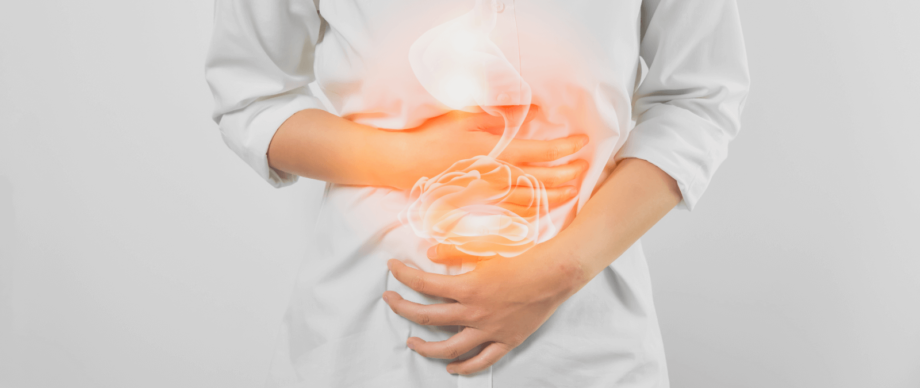Anxiety is a complex condition that impacts millions of people worldwide. It can manifest in many ways, from physical symptoms like shortness of breath to emotional challenges like constant worry. In this guide, we’ll explore common questions and practical strategies to manage anxiety, making it easier for you to understand and take control of your mental health.
What is Anxiety?
Anxiety is a natural response to stress, characterized by feelings of worry, fear, or unease. While occasional anxiety is a normal part of life, chronic or excessive anxiety may indicate an anxiety disorder. Anxiety disorders can range from generalised anxiety disorder (GAD) to panic disorder, social anxiety, or specific phobias.
Physical Symptoms of Anxiety
Anxiety doesn’t just affect your thoughts; it can also trigger physical symptoms. These include:
- Shortness of breath: Many people wonder, “can anxiety cause shortness of breath?” The answer is yes. Anxiety can lead to hyperventilation, creating a sensation of breathlessness.
- Tension in the neck and shoulders: If you’re wondering “how to relieve tension in the neck and shoulders from anxiety,” practices like deep breathing, progressive muscle relaxation, or a gentle massage can help.
- Digestive issues: Anxiety can disrupt digestion, leading to symptoms like diarrhoea. This raises questions like “can anxiety cause diarrhoea?” and “can anxiety cause loose bowel movements?” The answer is yes, as the gut and brain are closely connected through the gut-brain axis.
- Fatigue: Stress and anxiety take a toll on the body, leaving you feeling drained. “Can stress and anxiety make you tired?” Absolutely.
Read More: Types of ADHD and Why ADHD Coaching is Important
Anxiety’s Impact on Overall Health
Anxiety doesn’t just cause immediate discomfort; it can contribute to or exacerbate other health conditions. For instance:
- Hypertension: Does hypertension cause anxiety? High blood pressure can lead to feelings of worry and unease, creating a cycle of stress.
- Shortness of breath: Can stress and anxiety cause shortness of breath? Yes, as anxiety increases your heart rate and breathing, creating a feeling of suffocation.
- Exercise-related breathlessness: If you’ve recently exercised and are wondering how to tell if shortness of breath is from anxiety or physical exertion, consider the timing and context. Exercise-induced breathlessness usually improves with rest, while anxiety may persist alongside feelings of panic.
Read More: Want a Career Change? 10 Steps to Transition to a New Career You Love
How to Manage Anxiety Symptoms
Effectively managing anxiety requires a combination of strategies that address both the physical and mental aspects of the condition.
Immediate Relief Strategies
- Stop shaking from anxiety immediately: If you’re experiencing trembling, try grounding techniques like focusing on your breath counting down 5,4,3,2,1 or holding onto a cold object to divert your attention. For example, hold a frozen water bottle or press your feet firmly into the ground.
- Addressing shortness of breath: If you’re wondering how to tell if shortness of breath is from anxiety, consider your context. Anxiety-related shortness of breath often occurs alongside feelings of panic or stress. However, other factors like recent exercise, environmental conditions, or respiratory issues could also play a role. Deep breathing exercises, such as inhaling for four seconds, holding for four seconds, and exhaling for six seconds, can help regulate your breath.
Long-Term Anxiety Management
- Exercise: Physical activity releases endorphins, which naturally reduce anxiety. For example, a 30-minute brisk walk or a yoga session can alleviate symptoms and improve mood.
- Mindfulness and meditation: These practices help calm racing thoughts and promote a sense of control. Apps like Headspace or Calm can guide beginners in starting a meditation routine.
- Cognitive-behavioral therapy (CBT): CBT can help identify and reframe anxious thought patterns. Working with a therapist can provide personalised strategies to manage anxiety triggers.
- Diet and hydration: A balanced diet and staying hydrated support overall well-being and reduce anxiety’s physical effects. For example, incorporating magnesium-rich foods like spinach and almonds can help calm the nervous system.
- Cutting out sugar: Although reducing sugar might initially worsen fatigue, it often leads to sustained energy improvements. Consider switching sugary snacks for nuts, fruits, or whole grains to stabilize energy levels.
Handling Digestive Issues
If you’ve ever asked, “does diarrhoea cause anxiety?” or experienced the reverse, know that digestive issues and anxiety often coexist. To manage this:
- Incorporate probiotics into your diet to support gut health. For example, yogurt, kefir, and fermented foods can improve digestion.
- Practice relaxation techniques, such as progressive muscle relaxation, to reduce gut-related symptoms.
Coping with Anxiety’s Physical Effects
Relieving Neck and Shoulder Tension
- Stretching exercises, such as neck rolls and shoulder shrugs, can reduce muscle stiffness. For example, gently tilt your head to one side and hold for 10 seconds before switching.
- Heat therapy, like a warm compress or a heating pad, can soothe tension and improve circulation.
Managing Fatigue
- Prioritize sleep and create a calming bedtime routine. For example, dim the lights an hour before bed and avoid screen time.
- Reduce caffeine and alcohol intake, as they can heighten anxiety and disrupt sleep. Replace coffee with other drinks such as a fruit drink you like or herbal teas like chamomile for a soothing effect.
- Cut back on sugar to avoid energy crashes and promote long-term stamina. While initial withdrawal might feel challenging, sustained energy levels will improve significantly.
Addressing Breathlessness
- Engage in slow, controlled breathing to calm your nervous system. For example, the 4-7-8 breathing technique involves inhaling for four seconds, holding for seven, and exhaling for eight.
- Practice yoga or tai chi to improve breath control and reduce overall stress. Poses like child’s pose or cat-cow stretches can be particularly grounding.
Anxiety and Disability
Is anxiety a disability? In the UK, anxiety can qualify as a disability under the Equality Act 2010 if it significantly impairs your ability to carry out day-to-day activities. This recognition can help individuals access accommodations and support.
Do I Have Anxiety?
If you’re unsure about your symptoms, consider taking a self-assessment. A quick do I have anxiety quiz can provide insights into whether your feelings align with common anxiety symptoms. However, a professional diagnosis is essential for accurate assessment and treatment.
Conclusion
Anxiety can feel overwhelming, but understanding its symptoms and implementing effective strategies can help you regain control. From immediate grounding techniques to long-term lifestyle changes, there are many ways to reduce anxiety’s impact on your life. If you’re ready to take the next step, you can book a session with me as your Anxiety, Stress and Overwhelm Coach here.
FAQs
How to stop shaking from anxiety immediately?
To stop shaking, focus on grounding techniques, such as holding onto a cold object, practicing deep breathing, or engaging your senses by describing your surroundings. For example, name five things you can see, four you can touch, three you can hear, two you can smell, and one you can taste.
Is anxiety a disability?
Yes, anxiety can be considered a disability in the UK if it significantly impacts daily life and functioning. You may qualify for accommodations under the Equality Act 2010.
How to tell if shortness of breath is from anxiety?
Anxiety-related shortness of breath often occurs alongside a rapid heart rate, feelings of panic, or tightness in the chest. If the symptom persists, consult a healthcare provider to rule out other causes.
Can anxiety cause diarrhoea?
Yes, anxiety can cause diarrhoea due to the gut-brain connection, where stress affects digestion.
Does diarrhoea cause anxiety?
Yes, ongoing digestive issues like diarrhoea can increase stress and anxiety, creating a feedback loop.
Does hypertension cause anxiety?
High blood pressure can contribute to feelings of worry or unease, potentially triggering anxiety.
Do I have anxiety quiz?
Taking an online quiz can help identify potential anxiety symptoms, but it’s not a substitute for professional diagnosis. If you suspect you have regular anxiety speak to your GP or a health professional.
Can anxiety cause shortness of breath?
Yes, anxiety can create a sensation of breathlessness, often linked to hyperventilation.
Can anxiety cause loose bowel movements?
Yes, anxiety can lead to loose bowel movements as stress affects gut function.
Can anxiety make you feel short of breath?
Yes, anxiety can create a sensation of breathlessness, often linked to hyperventilation.
Can stress and anxiety cause shortness of breath?
Yes, stress and anxiety can trigger physical reactions like shortness of breath through hyperventilation or muscle tension.
How to relieve tension in the neck and shoulders from anxiety?
Use deep breathing, stretching, or heat therapy to release tension in these areas.
Can stress and anxiety make you tired?
Yes, prolonged stress and anxiety can drain your energy and leave you feeling fatigued.


